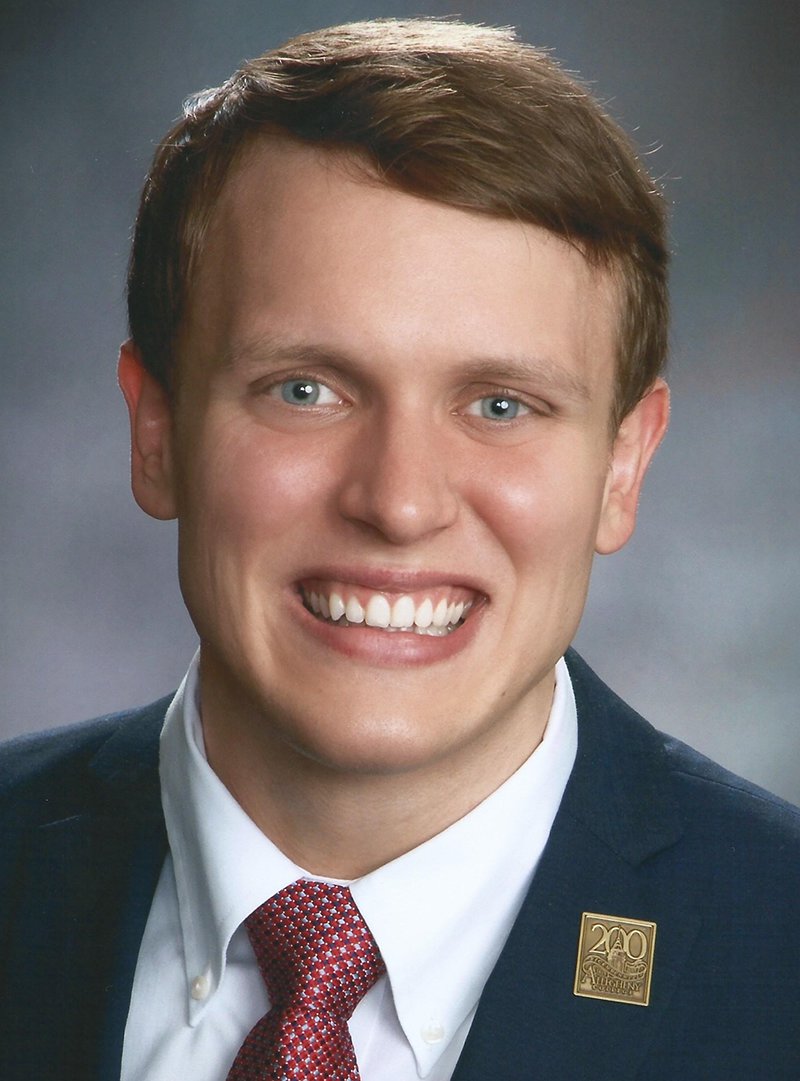Allegheny College Graduate Garrett Devenney Selected for National Health Policy Fellowship
 Allegheny College alumnus Garrett Devenney is a busy man and admits his selection as a recipient of the prestigious 2018 David A. Winston Health Policy Fellowship hasn’t really sunk in yet.
Allegheny College alumnus Garrett Devenney is a busy man and admits his selection as a recipient of the prestigious 2018 David A. Winston Health Policy Fellowship hasn’t really sunk in yet.
The 2016 Allegheny graduate was one of two students selected for the fellowship, beating out a competitive field of 70 applicants from across the country. The Winston fellowship offers a 12-month post-graduate experience in Washington, D.C., to students who are committed to working in health policy and demonstrate extraordinary potential to succeed and make a difference in the field.
Devenney, 24, lives in Philadelphia and is on track to earn a master’s degree in public health from the Drexel University Dornsife School of Public Health in June. He will begin the Winston fellowship four days before receiving his graduate degree.
Devenney also is currently interning at Merck, a global healthcare company, within its Global Vaccine Policy Development team; he is part of a group focused on shaping the vaccine ecosystem through policy efforts at the state, federal and international levels. This includes working with vaccine coalitions and advocates, writing policy briefs and engaging with external stakeholders such as the World Health Organization and the Centers for Disease Control and Prevention.
Devenney began his career path at Allegheny as a double major in biology and global health studies. During his undergraduate studies, he was a four-year member of the varsity swimming team and served as an Allegheny admissions tour guide for three years.
While growing up in the small town of Eighty Four, Pennsylvania, Devenney knew just a few months into his senior year of high school that Allegheny was the right fit. It was the first college he visited and turned out to be the only one to which he applied.
“I immediately fell in love with the small school atmosphere. I came from a very small high school and knew I didn’t want to attend a large school,” Devenney says. “I originally wanted to attend med school, and I knew Allegheny had a very strong pre-health program so that was kind of my original intent. I also wanted to continue swimming and that I probably couldn’t swim Division I, so Division III was probably the best bet for me. Allegheny checked off all those boxes.”
He had plans to become a physician, but eventually realized that crafting acceptable, feasible and culturally relevant policy can be truly transformational for communities.
Devenney says that Allegheny gave him the tools to excel at whatever he wanted to do. He especially credits the advocacy and encouragement of his Allegheny advisor, Assistant Professor of Biology and Global Health Studies Becky Dawson. She taught him to aim high and not be intimidated by ambitious goals, Devenney says.
“I think one of the biggest things I learned at Allegheny was how to manage my time, and that is a result of not only the rigorous coursework, but also managing everything else in between,” he says. “Allegheny really taught me how to critically think about a lot of issues, so it wasn’t surface level or topical learning. I feel our coursework really went into depth to examine issues and think creatively about solutions and to ask more questions.”
Devenney also was the recipient of a 2017 Winston Health Policy Scholarship prior to earning the Winston Health Policy Fellowship. He will begin the fellowship with three months of orientation visits to key policy development centers in Washington and surrounding areas, followed by a nine-month placement exploring current health policy issues in-depth while gaining firsthand experience in policy-making.
The program enables fellows to expand their knowledge of the political system and learn how health policy is shaped through systematic exposure to organizations, associations and coalitions in the private sector, as well as key offices in Congress and the administration.
Devenney’s policy interests include various components of Medicare and Medicaid, such as financing, enrollment and waivers, among others. He also is passionate about vaccines and gun violence as public health issues, and aims to keep an open mind prior to his placement in the fellowship.
“I want to work in D.C. and in public health policy on big health issues,” Devenney says. “I have a feeling I will make a lot of connections during my year as a fellow. They are setting you up to get your name out there and then network to be set up after the fellowship.”